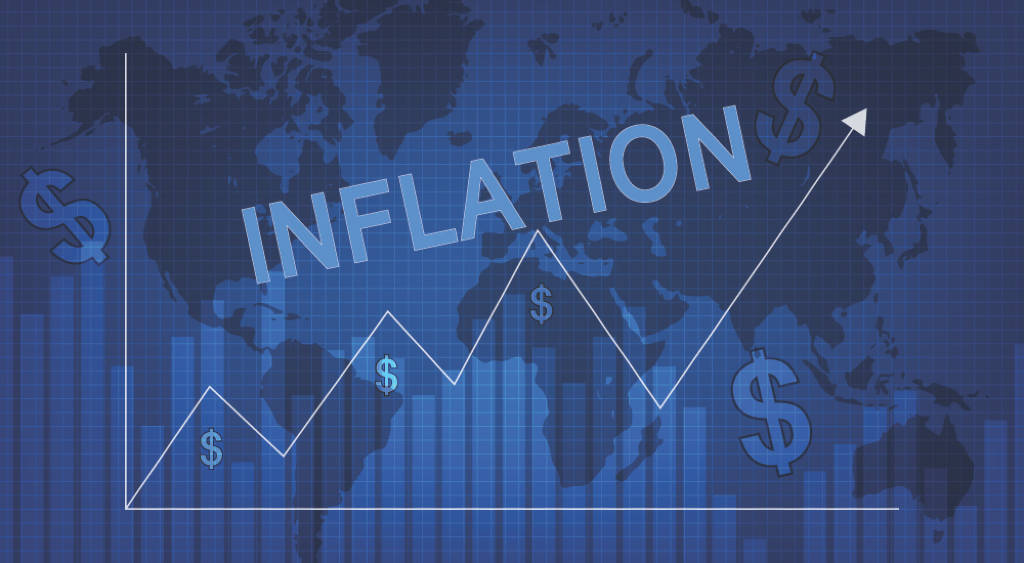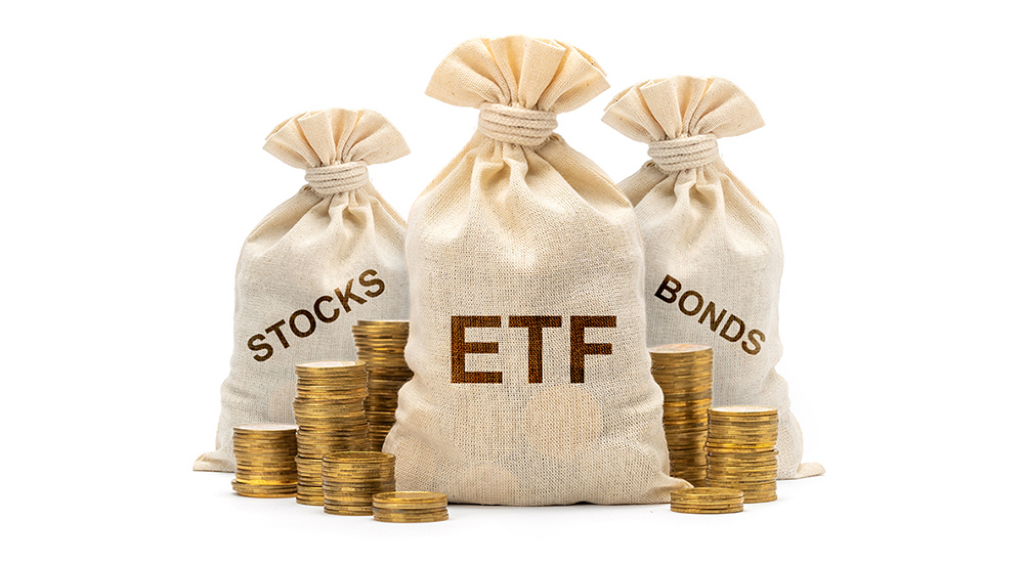4 Best Investments to Make During Inflation

- Some investments perform well in an inflationary environment while others perform poorly, so it pays to evaluate your portfolio.
- Physical assets (e.g., real estate and commodities) or assets that have a return tied to the inflation rate (e.g., certain kinds of bonds) are viewed as an inflation hedge and typically perform well.
- Assets with a long-term fixed return rate with limited ability to adjust with inflation typically perform poorly.
The word "inflation" has become part of daily conversations since May 2021, when the inflation rate hit 5%, a level not seen since 2008. Since that time, it has increased steadily, peaking at almost 8% in February 2022 and declining to approximately 6.5% in March 2022. Today's rates are in stark contrast to the 1% to 2% inflation rates (and even negative inflation rates) that occurred following the Great Recession and the recovery of the economy.
One of the first effects of inflation is higher prices, which is increasingly evident at the grocery store and gas pumps during current times. However, a second indicator is also being felt: higher interest rates.
On March 16, the Federal Reserve approved a 0.25 percentage point rate hike, the first increase in more than three years. However, it won't stop there. The Fed has indicated that it will continue to increase rates in an effort to cool demand and inflation.

Reviewing your investments and planning your money moves is sound advice in all economic seasons. However, it is particularly important in an inflationary environment. So, before diving into the pros and cons of various investments under inflation, let's first define inflation.
What is Inflation?
Inflation is generally defined as an increase in prices over a set period of time. On the contrary, when prices decrease versus increase, it is called deflation. Both can hurt the economy.
High inflation can make goods and services unaffordable. The impact is even grander when only prices are increasing but not salary.
While deflation may seem positive, it can also negatively impact the economy. For example, if bread decreases from $3.00 per loaf to 30 cents for a loaf, bread manufacturers know that their customers aren't going to suddenly stock up to the tune of ten loaves of bread just because prices have decreased tenfold.
The Federal Reserve seeks to keep inflation rate increases to a low and stable level in the neighborhood of 2%. They have managed to do so from 2008 until mid-2021. However, the impact of COVID-19 on the global supply chain and economy led to increasing demand for many goods, resulting in an increase in prices and inflation.
How Inflation Affects the Value of Assets
Inflation has an uneven effect on the value of investments and the cost of debt. For example, investments that provide a return that is fixed tend to do poorly under inflation against a background of rising prices. In contrast, a fixed-rate mortgage or a fixed-rate loan, such as a car note, will look like a stroke of genius against increasing loan rates.
An investment with a variable return that can be adjusted over time will provide a measure of protection against inflation. On the other hand, a variable credit card rate or the need to borrow money down the road will prove costly under inflation.
Assets That Do Well Under Inflation
As inflation rises, the investments that perform well under inflation and retain all or most of their value can bring in more cash, or appreciate.
Real Estate
Short-term rental properties that allow you to adjust prices frequently, such as between clients, are an ideal hedge against inflation. Even conventional rentals that operate under a 12-month lease provide some protection under inflation. Real estate investment trusts (REITs), a specialized fund for investing in a cross-section of properties, serve as another on-ramp to rental investments.

While mortgages are not generally viewed as an investment, a fixed-rate mortgage in an inflationary environment provides certain advantages. The fixed and presumably lower mortgage rate, locked in for 30 years, insulates the homeowner from rising mortgage rates that are generally felt in the economy.
Commodities
A commodity is a basic good that is the same as all the other goods in its category. For instance, while distinctions in gold are made in terms of purity, distinctions are not normally made based on the country or gold mine of origin. In other words, as long as one ounce of gold from gold mine A or country A is equal in purity to another ounce of gold from gold mine B or country B, both ounces of gold are considered the same, and thus, a commodity.
Investors often target commodities during rising inflation because the commodity's price typically increases along with inflation. For investors who prefer not to buy physical gold in the form of coins or bullion, mutual funds and exchange-traded funds (ETFs) that own gold are good options.
Other commodities that tend to rise with inflation are raw materials such as petroleum and copper and agricultural products such as cotton, soybeans, and orange juice. As with gold, these commodities are typically purchased through commodity-based ETF funds rather than buying the physical product.
Bonds
Bonds are a type of loan that a company or government body issues to investors in exchange for promising to pay back the principal and providing interest on the bond. A fixed-rate bond, particularly one with a long maturity or term, typically performs poorly under inflation. However, not all bonds are fixed-rate.
The U.S. Treasury issues a bond tailor-made for inflation called Treasury Inflation-Protected Securities (TIPS). The interest rate, also called yield, for TIPS bonds is tied to the Consumer Price Index (CPI), a bellwether measure of inflation. When CPI rises, so does the TIPS bond's value and yield. In addition, companies and other government entities also issue variable rate, or floating rate, bonds. Both TIPS and floating-rate bonds can be purchased through ETFs or mutual funds.

Stocks
Stocks do a fairly reasonable job of keeping pace with inflation and thus are generally favored in inflationary climates. However, certain stocks do better than others. For instance, companies that pass on higher inflation in the form of higher prices to customers tend to do well. A good example is the energy sector. On the other hand, stocks with a harder time passing on costs because the good is more of a nice-to-have than a must-have don't do as well. In this case, a good example is the hospitality sector.
Assets That Are Hurt By Inflation
Inflation erodes the value of fixed-rate investments. Therefore, in addition to fixed-rate bonds underperforming, certificates of deposit (CDs) can also be vulnerable—for example, a long-dated CD, such as a seven-year fixed-rate certificate of deposit.
The Money Wrap-Up
Swapping adjustable-rate loans for fixed-rate loans, or paying down adjustable-rate loans, is one of several measures that can be considered to minimize your exposure to inflation. However, it is uncertain whether inflation will worsen or lessen under the conflicting forces of the Federal Reserve seeking to contain inflation and the Russian invasion fanning economic uncertainty. Whichever the case may be, consideration should be given to money moves that protect you from inflation.
Disclaimer: The mentioned remarks regarding financial instruments are not considered financial advice. Should you invest in any company that offers these financial instruments, do your due diligence before investing. CapWay is not liable for any losses made from investments based on the above information.